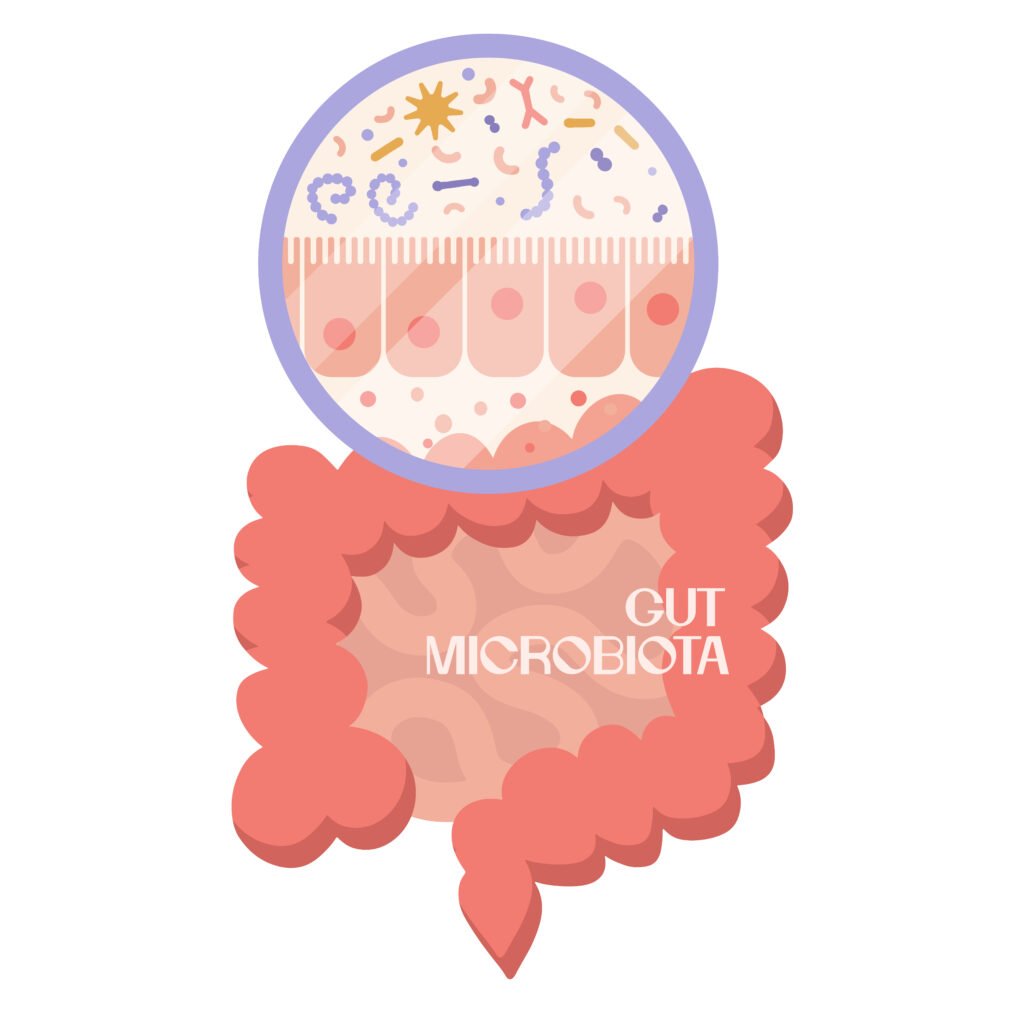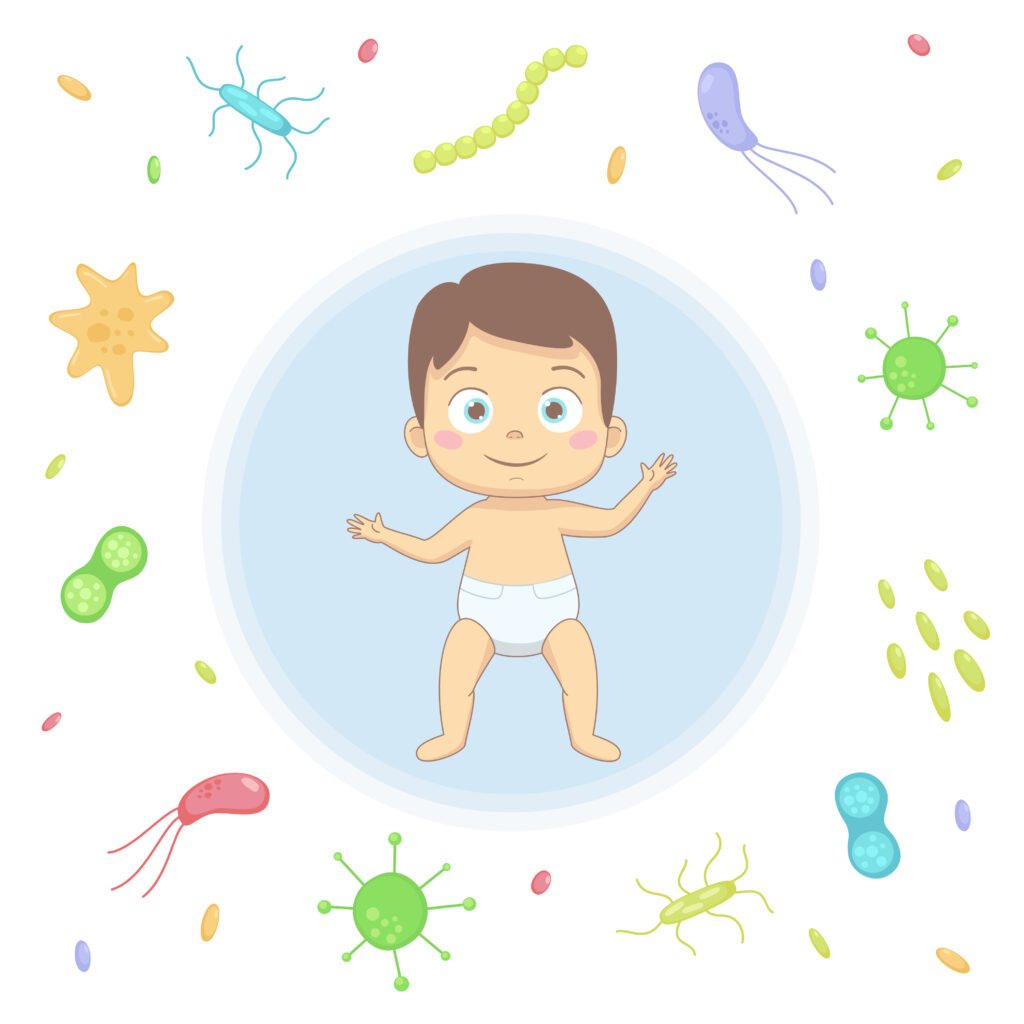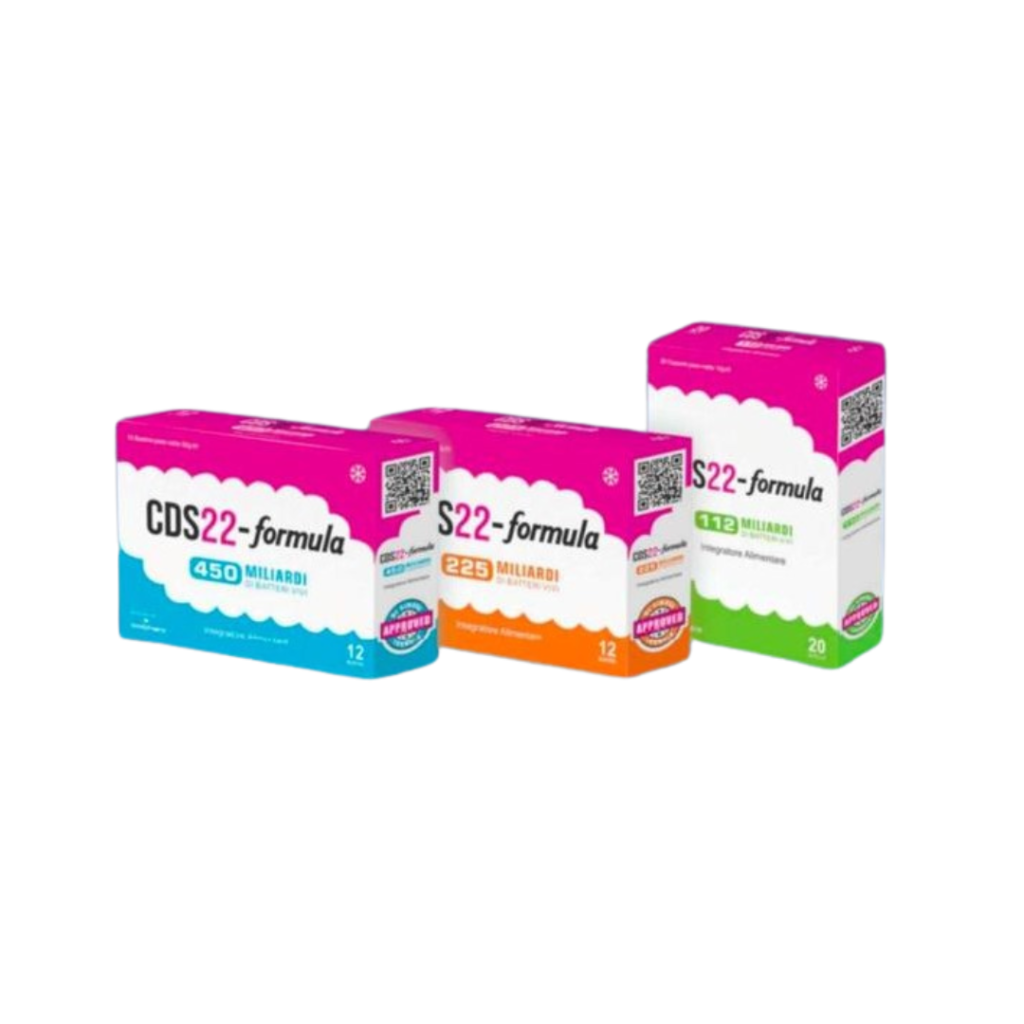Home » CDS-22
CDS-22
Importance of Gut Microbiota
Several hundred bacterial species and a total of 1014 cells colonize the human gastrointestinal (GI) tract in a mutualistic relationship with the host and its immune system.
A healthy gut microbiota is stable and serves various useful functions such as metabolizing barely digestible polysaccharides, detoxifying toxic products, serving as a barrier against pathogens and aiding in the development of the host immune system.
However, it has become clear through recent studies that dysbiosis, in which the symbiotic relationship between the host and gut microbiota is altered, is associated with various diseases, including inflammatory bowel disease (IBD), irritable bowel syndrome, obesity, allergy, autoimmune diseases and brain disorders.

Neonate and Infant Gut Microbiota
Although intestinal bacterial colonization begins when a fetus is in the lower uterus, an infant’s gut microbiota is established after birth. The establishment of a stable gut microbiota generally accompanies two big transitions in infancy. The first transition occurs soon after birth, during lactation, and results in dominance of the gut microbiota by Bifidobacterium. The second transition occurs during the weaning period, with the introduction of solid foods and continuation of breast milk feeding and results in the establishment of an adult-type complex microbiome dominated by the phyla Bacteroidetes and Firmicutes.


The early establishment of gut microbiota is affected by several factors such as delivery mode (cesarean delivery vs. vaginal delivery), breast milk vs. formula feeding, antibiotic usage, and timing of the introduction of solid foods and cessation of milk feeding.
In addition, intestinal bacterial colonization has profound effects on the development and physiology of the host immune system in early life and affects health and disease in later life. In particular, colonization with intestinal bacteria is necessary for normal immune system development.
Therefore, development of the gut microbiota in infancy occurs during a ‘critical window,’ and a disturbance in this process may cause immune diseases such as food allergies, gastro-intestinal disorders, atopic dermatitis, and asthma.
CDS-22 can significantly contribute to a child’s gut health
CDS-22 is a very high concentration probiotic blend, containing 8 carefully selected, strains of live bacteria in a concentration of 50 billion bacteria in a 5 ml bottle.
CDS-22 contains the De Simone Formula which I arguably one of the most studied and research backed probiotics formula.
CDS-22 is shipped and stored under refrigerated conditions (4-8°C) to ensure maximum potency. CDS-22 is non-GMO and gluten-free.

How CDS-22 can help your child?
CDS-22 helps restore and maintain a balanced intestinal microbiota (ecosystem), thus supporting the healthy growth of your child.
CDS-22 is available in an easy-to-use drops form for effective usage in neonates to infants.

Composition
Ingredients: 50 billion live lactic acid bacteria and bifidobacteria*.
Streptococcus thermophilus
DSM24731 / NCIMB 30438
Bifidobacterium breve
DSM24732 / NCIMB 30441
Bifidobacterium longum
DSM24736 / NCIMB 30435*
Bifidobacterium infantis
DSM24737 / NCIMB 30436
Lactobacillus acidophilus
DSM24735 / NCIMB 30442
Lactobacillus plantarum
DSM24730 / NCIMB 30437
Lactobacillus paracasei
DSM24733 / NCIMB 30439
Lactobacillus delbrueckii subsp. bulgaricus
DSM24734 / NCIMB 30440**